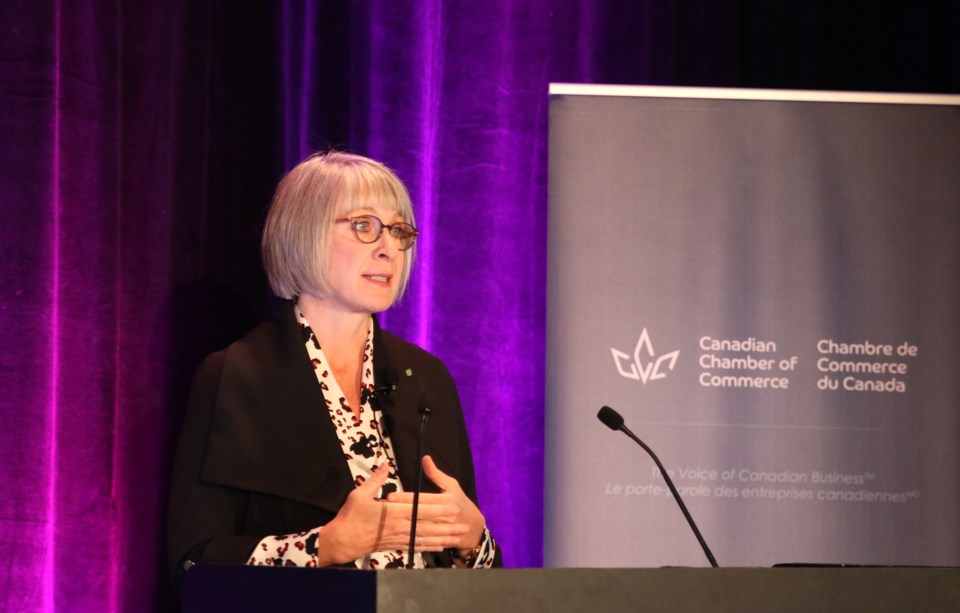THUNDER BAY - The Canadian Chamber of Commerce will be calling on the federal government to make it easier for skilled workers to settle in rural communities in the hopes of addressing labour shortages that are affecting small and medium sized businesses across the country.
“We’ve actually put forward a resolution today to call on the federal government to make some changes to the way the permanent residency program works to allow for more flexibility for rural communities,” said Thunder Bay Chamber of Commerce president, Charla Robinson. “We will be debating that this afternoon and we are expecting broad support.”
The resolution is coming on the third day of the Canadian Chamber of Commerce Annual General Meeting and Convention being held in Thunder Bay this weekend.
The issues of immigration and shortages in the workforce have been a major talking point during the convention and Minister of Employment, Workforce Development, and Labour, Patty Hajdu, addressed the delegates on Sunday.
Hajdu said the federal government recognizes the need for more skilled workers, particularly in small and rural communities in areas like Northwestern Ontario, and it is working to addresses the challenges of bringing more people to these areas.
“As the minister of employment, I can say that we are seeing labour shortages in some sectors and that is a new challenge that we haven’t seen in a while,” Hajdu said. “Employers recognize that we need a robust immigration plan in this country that is specific, that deals with the shortages that we deal with in a variety of sectors.”
According to Hajdu, one of the biggest challenges facing strong and secure immigration policies is the political landscape that has seen an increasing number of voices and pressures that seek to reduce immigration.
“That makes it challenging politically, it makes it challenging for communities who are trying to integrate newcomers and make sure that everybody has that solid foundation from which to grow,” she said. “Businesses know that healthy, strong, and thoughtful immigration system is exactly what is needed for businesses that are looking for talent and looking for labour.”
Hajdu added that after speaking with businesses across Canada, it is evident that there is a need for a diverse and strong workforce, including Indigenous people, women, people with disabilities, and newcomers to the country.
“This is a small country, we simply don’t have the talent we need to continue this level of growth so we are going to be thoughtfully considering how we move forward and making sure business has what it needs to succeed,” she said.
Regional municipal leaders have also been looking at ways to attract more people to small and rural communities, which was discussed during a recent roundtable meeting between the Northwestern Ontario Municipal Association and FedNor.
In a report released by the North Superior Workforce Planning Board in 2015, it is estimated that Thunder Bay alone will need more than 50,000 immigrants in over the next 25 years to ensure a steady workforce in the wake of an aging population.
The chamber delegates echo this need and Robinson said from a labour perspective, businesses need the ability to attract and retain a skilled workforce and policies that make that process easier.
“We are already seeing labour shortages across all sectors, whether that is highly skilled jobs in saw mills or manufacturing plants, or front line people to work in a kitchen or drive a truck,” she said. “That is a challenge we are facing across the Thunder Bay region, but also across Canada.”
Robinson said she understands that enticing people, particularly newcomers to Canada, to settle in rural or remote communities can be a challenge. Often when people arrive in Canada, they settle in large urban centres like Toronto, Montreal, or Vancouver.
“We are trying to get them before they get settled to start to look at the opportunities here,” she said. “But we are also working at the local level to build relationships between some of the GTA areas where we know there are a lots of folks who are not finding the jobs that they are highly skilled for.”